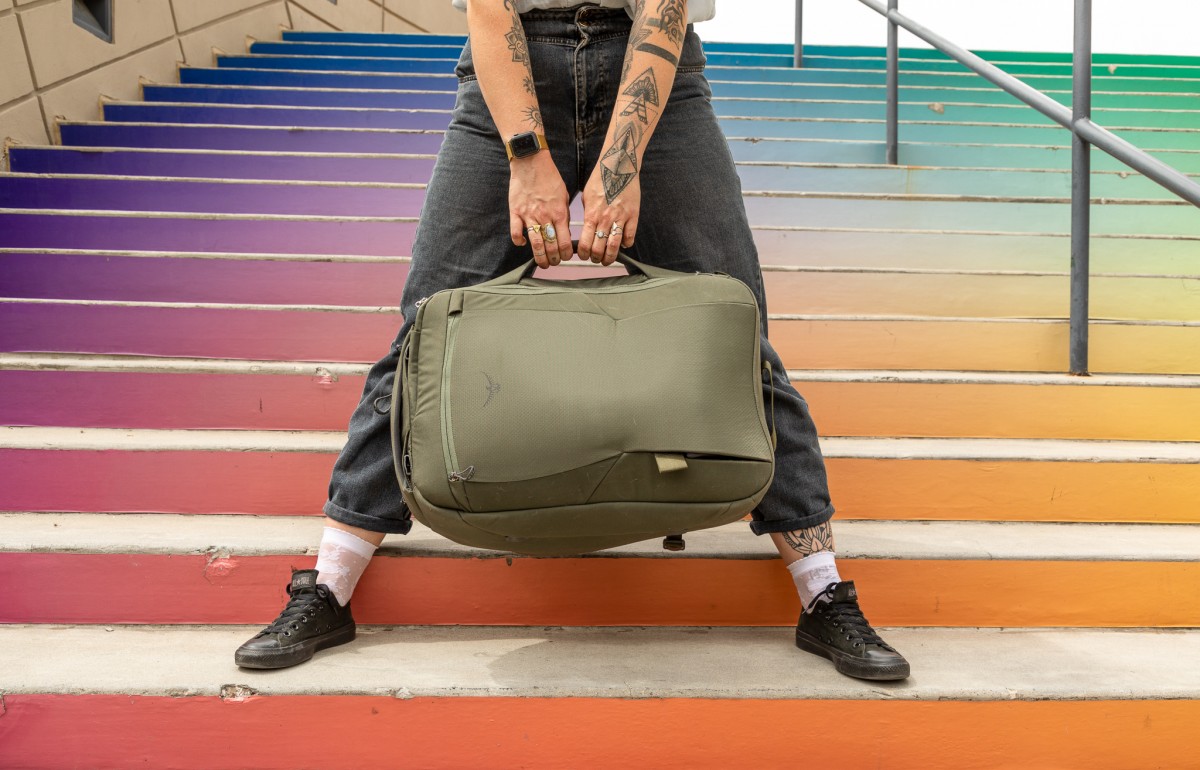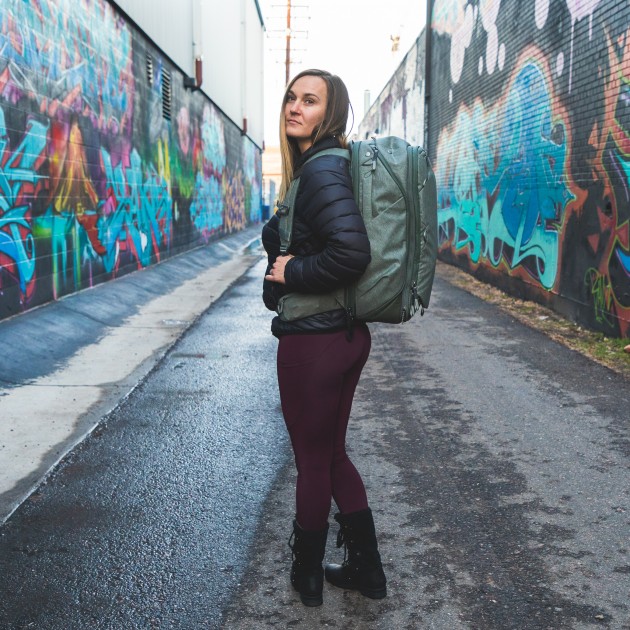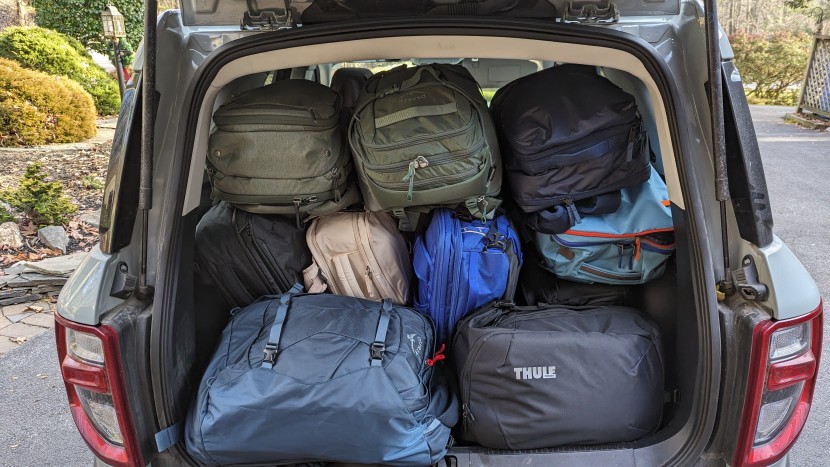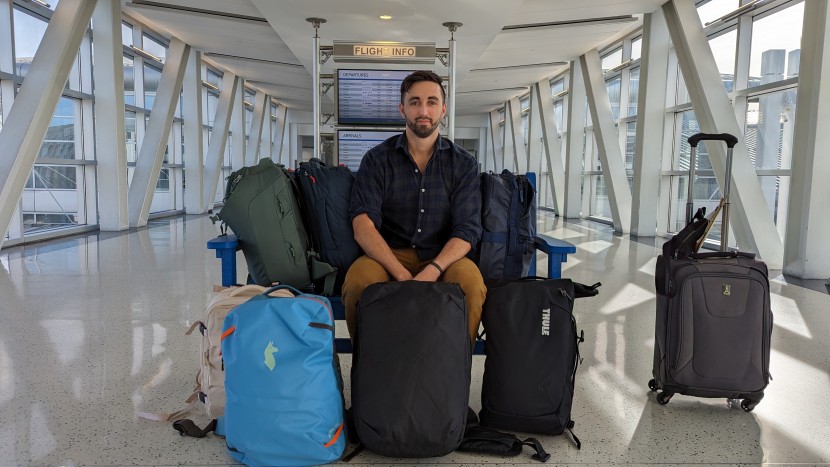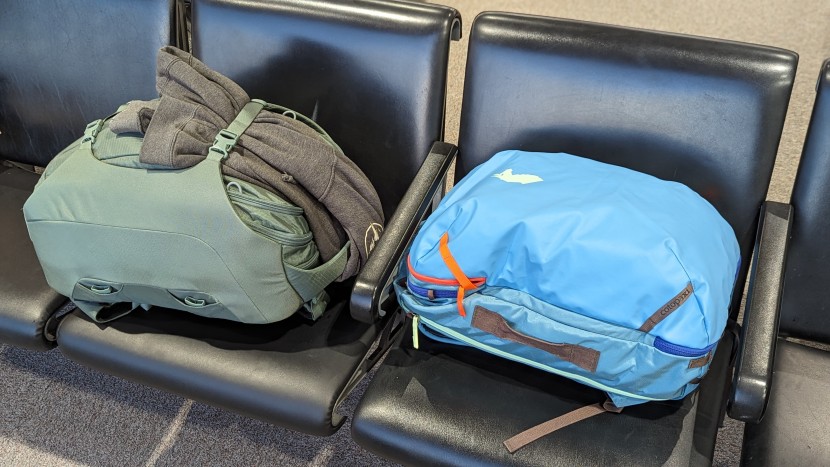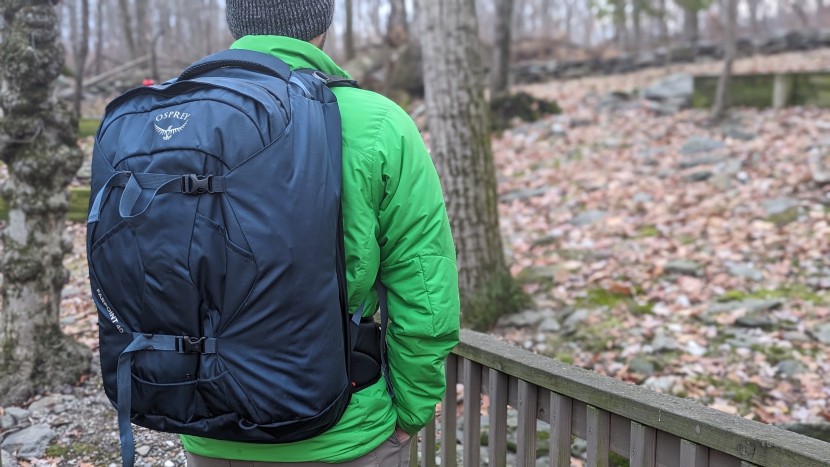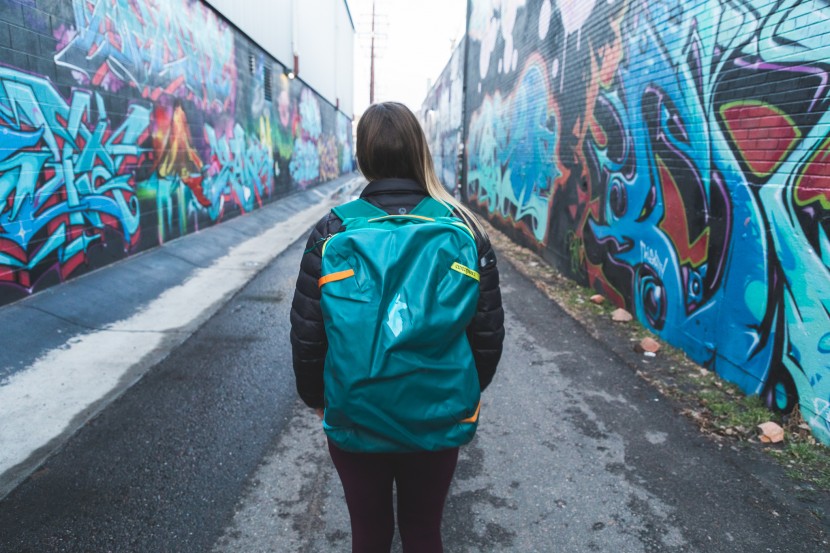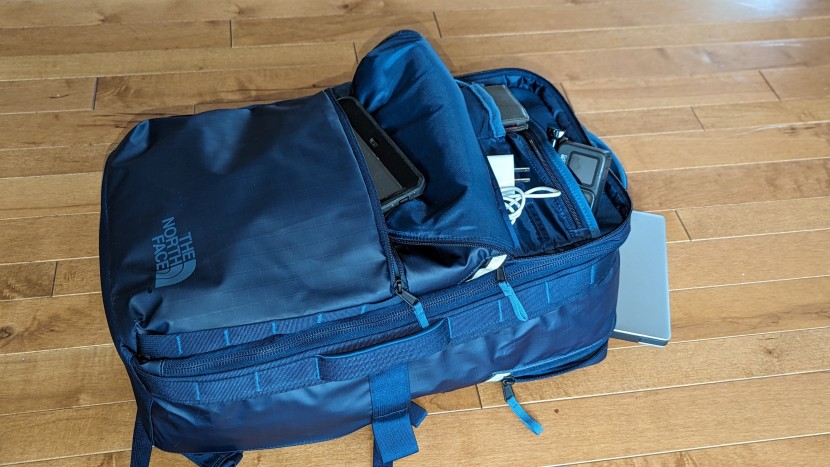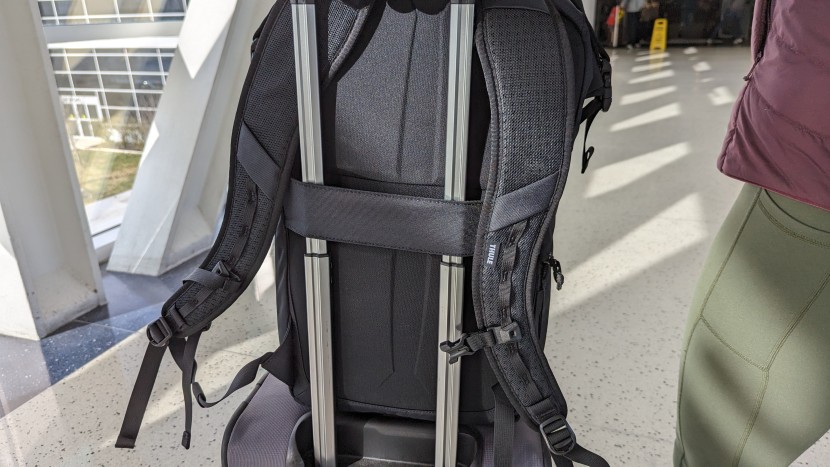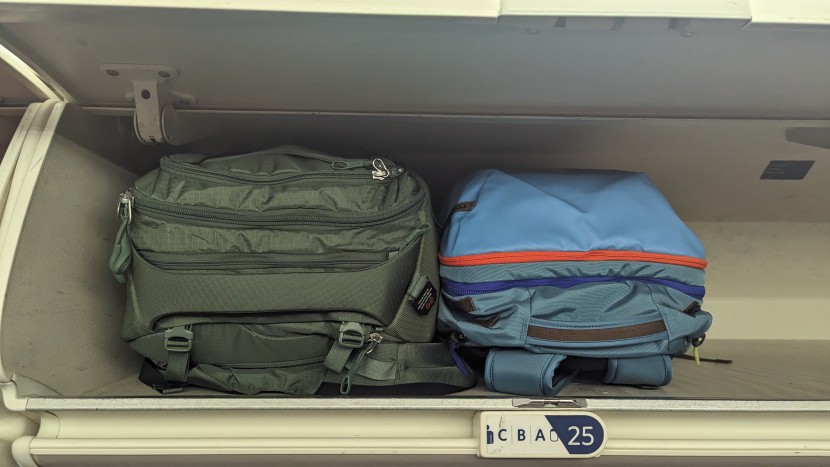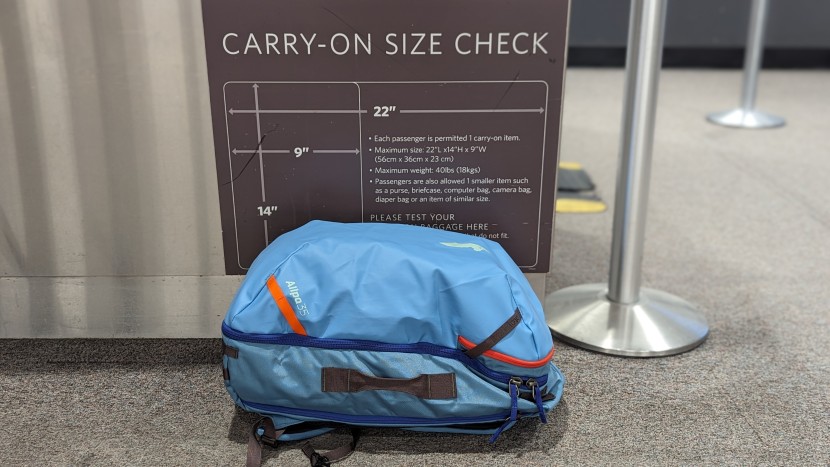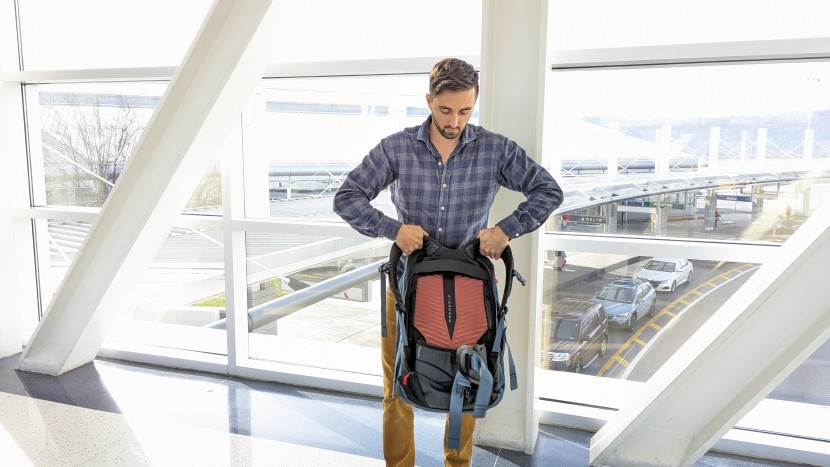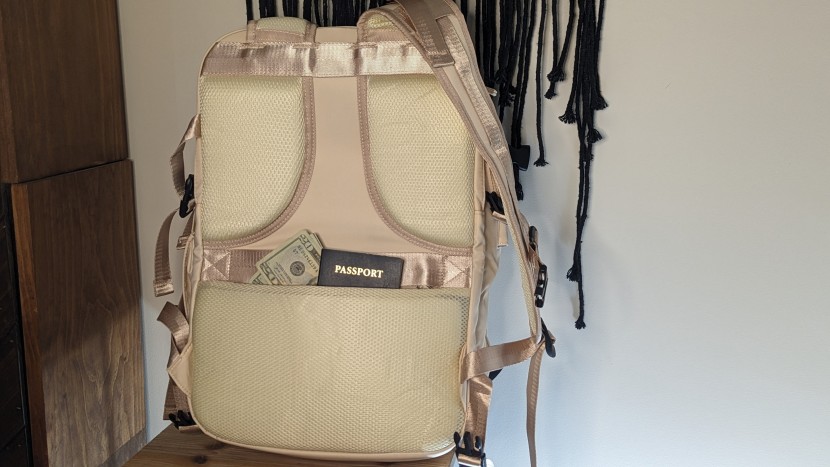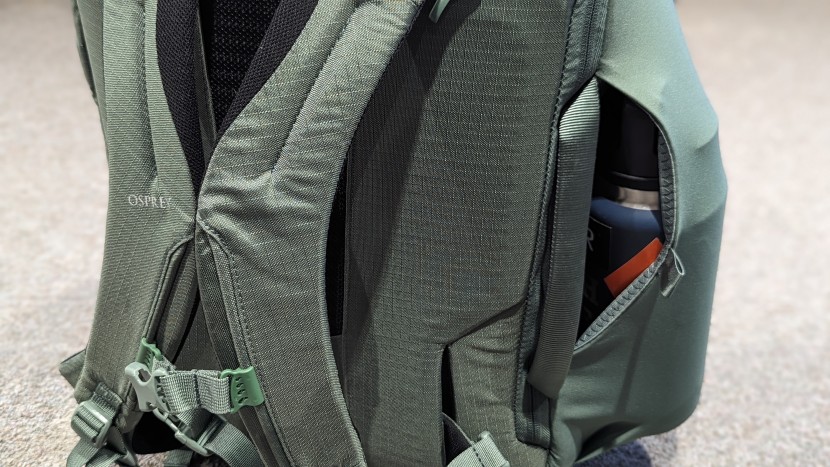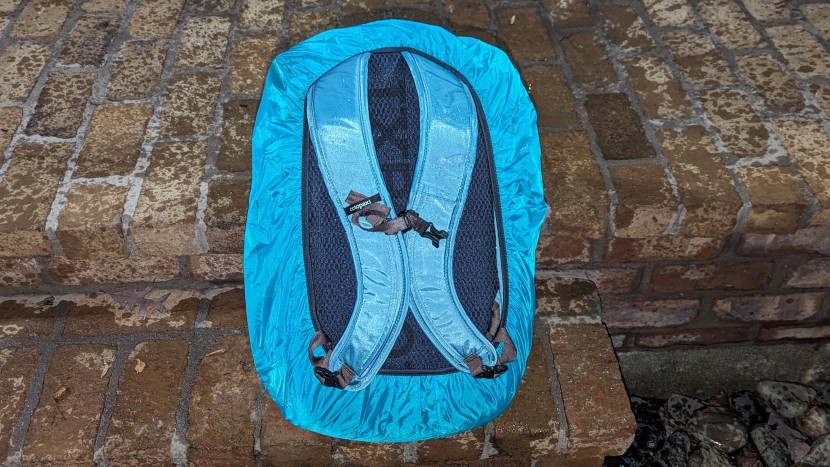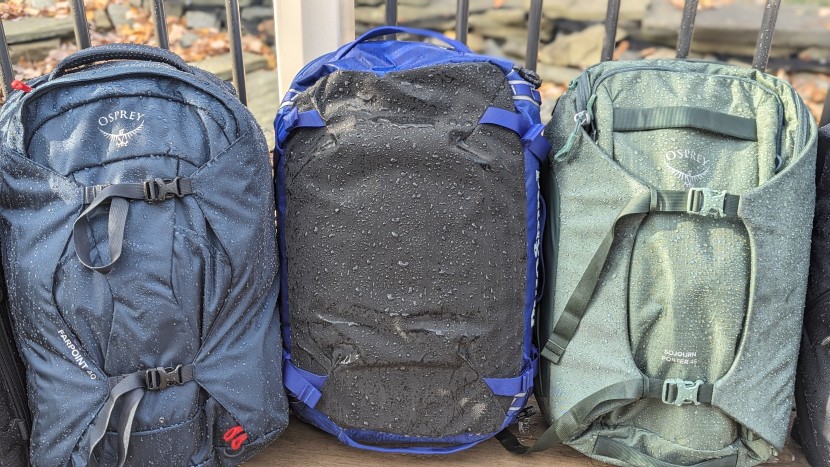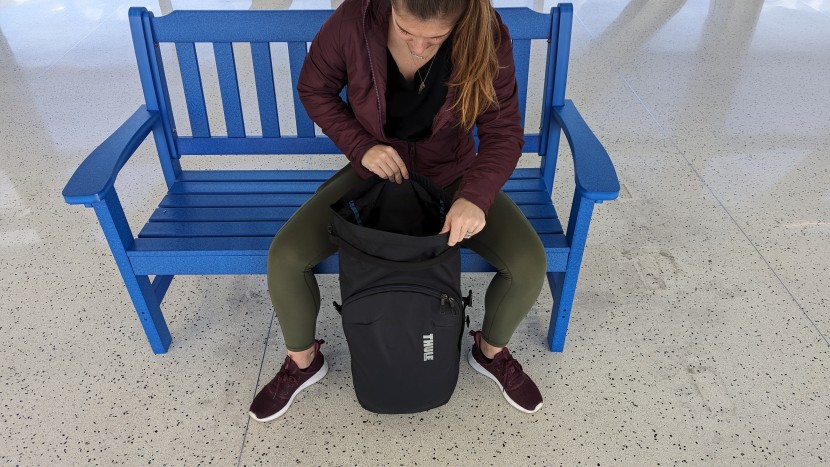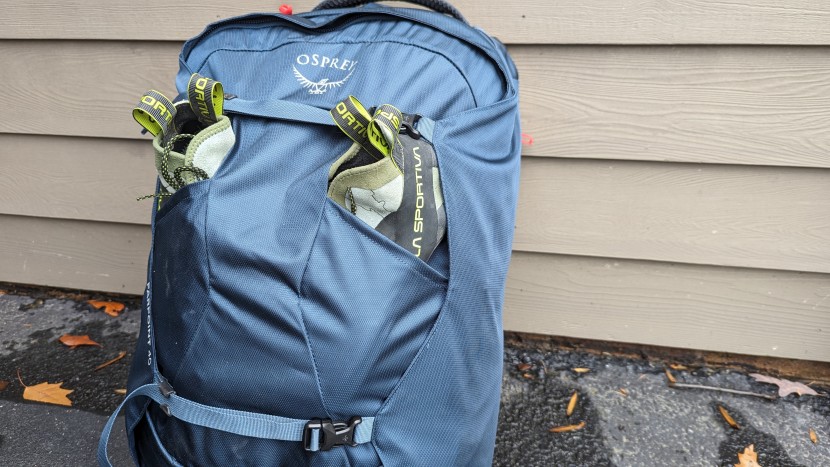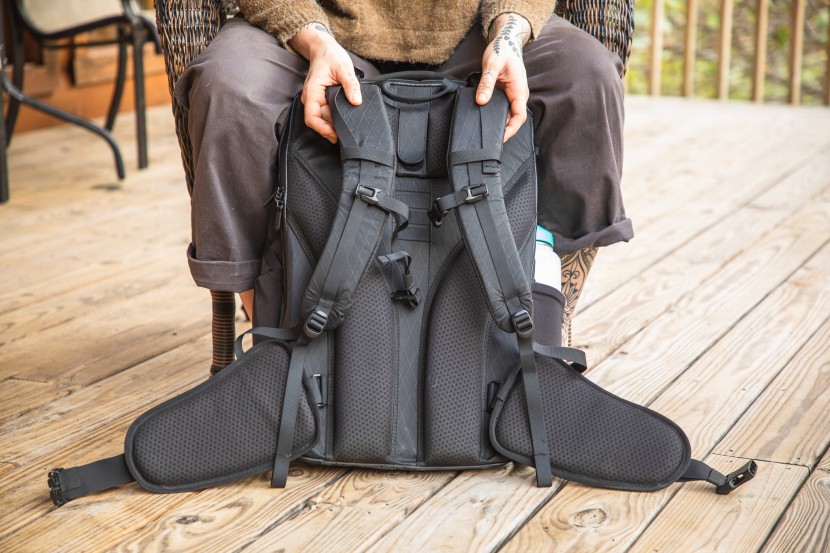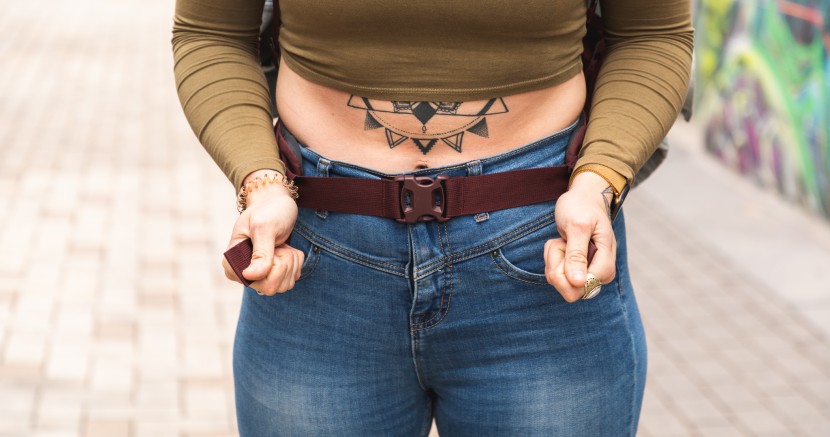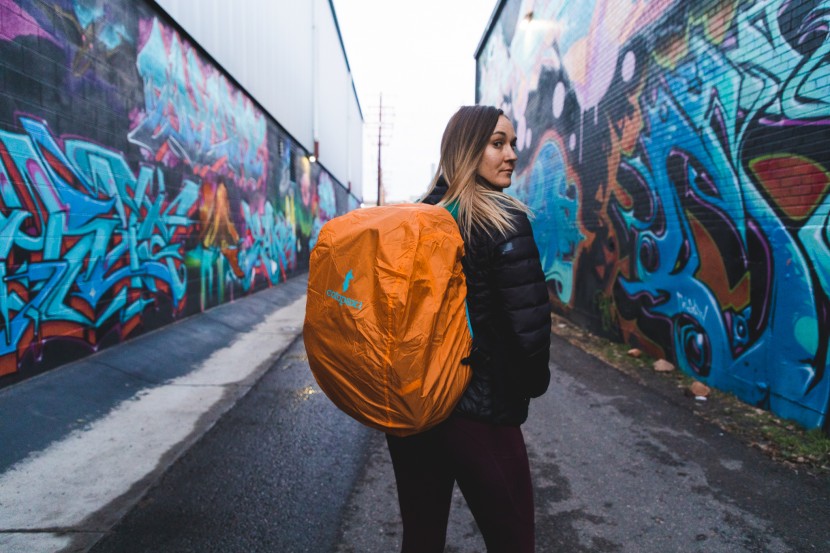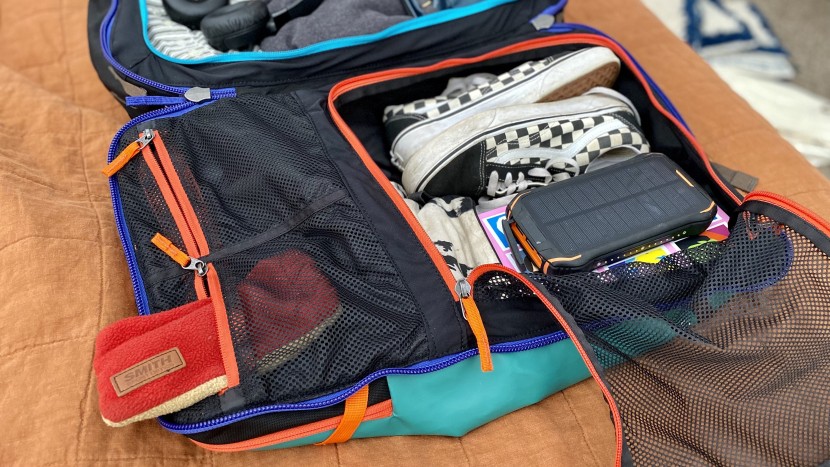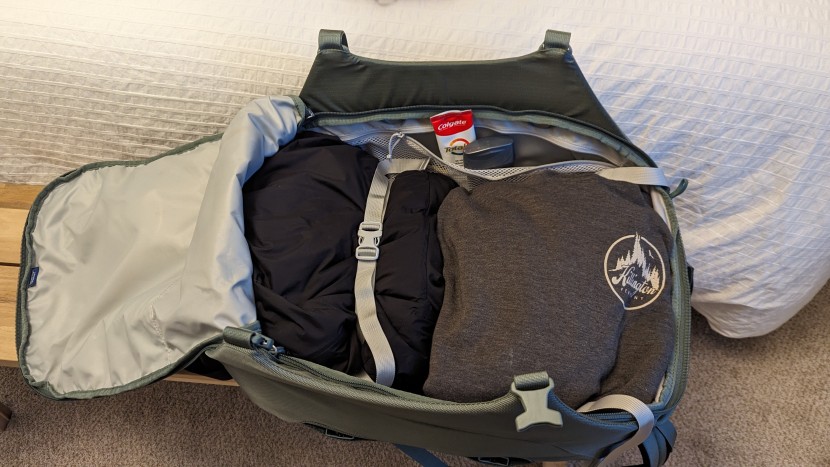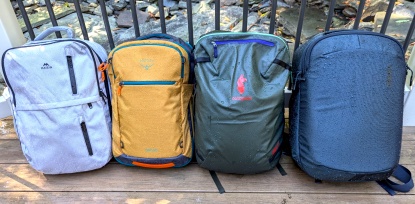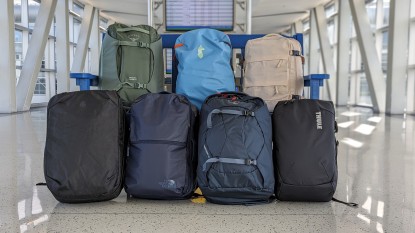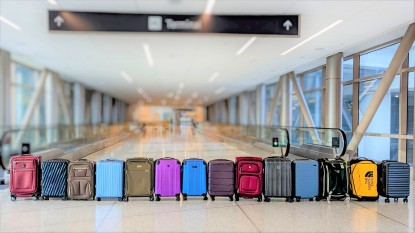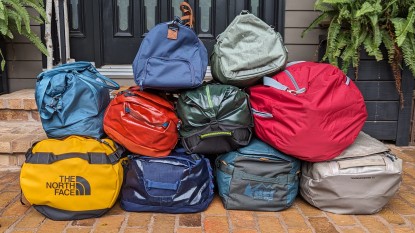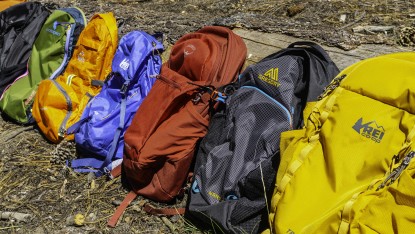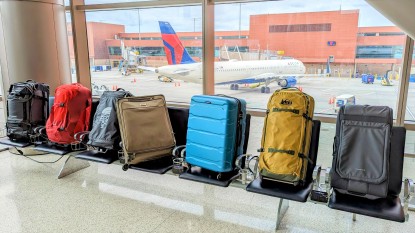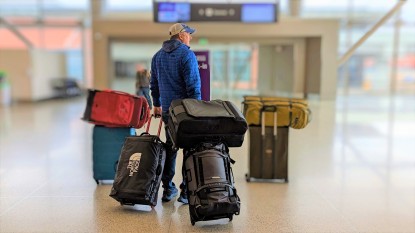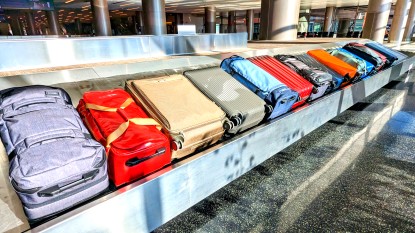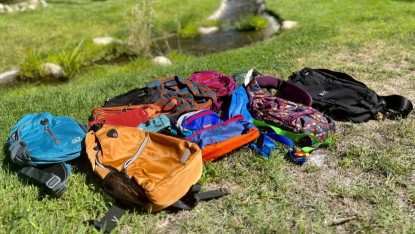Purchasing A Travel Backpack
What makes a bag that you travel with a travel backpack? There are so many niche products in the pack market that it can get exhausting to comb through the nuances that separate a travel backpack from a commuter bag from a laptop bag. Truth be told, there is a lot of overlap between categories, and sometimes we prefer to travel with something that has multiple uses. A blend between a duffel and a travel backpack, or an airline-friendly backpacking style pack are both good examples. Several outdoor and travel gear companies have carefully thought through everything that might help make life on the road a little more manageable, from suitcase-like panel-loading features to detachable daypacks, padded carry handles, lockable zippers, zip-open vs lay-flat electronics pockets, and covers that zip up to protect shoulder straps from hungry airport luggage escalators.
Travel packs can be less comfortable than traditional backpacking or crag bags and aren't as well-suited to longer outdoor excursions or super heavy loads. For example, if you're planning a 10-day backpacking trip in the Alps in the middle of a three-week hostel-hopping European adventure, then it may be wiser to purchase a dedicated hiking backpack or one of the top ultralight backpacks, and maybe pair it with one of our favorite daypacks. Plus, if you're not that into specialized travel features, then a backpacking pack will not only get your stuff to locales around the globe but will also serve you well on hikes at home by saving space in your closet — and in your budget. You will, however, find several backpacks in this review that we would not hesitate to take on our hiking, climbing, or other outdoor adventures.
Once you've thought through your backpack priorities, you'll have a better idea of whether a travel-specific backpack will best meet your needs or if you should instead look at a backpacking or crag bag. If it's truly a travel pack you're after, read on as we discuss two of the most important aspects to consider when choosing your perfect pack.
But First… A Note on Traveling Light
Comfort is a key aspect of a good pack, and it became a hot topic during our testing. Much debate ensued, followed by research, field testing, and more debate; eventually, there were some acquisitions and admissions. Here is a distillation of our thoughts:
One way to make your travels more comfortable is to carry less stuff. Technology today allows us to pick clothing, gear, luggage, etc., made of lightweight and very durable materials, and when you choose your gear carefully, the payoff can be huge. When it comes to packing all these items for your weeklong trip, more expense upfront often translates to gear with a longer lifespan, nicer styles, more versatility, and less wear and tear on your body because you're not carrying so much weight on your back. And if a whole new wardrobe of ultralight undies is not in your budget for this trip, remember the old-fashioned way of going ultralight: take fewer things and choose your features wisely so they work for you instead of against you.
Alternatives to Travel Backpacks
There are a few alternatives to a travel backpack that we examine below: duffel bags, daypacks, and laptop packs. If you are looking for a bigger pack to take into the backcountry, then check out our reviews of the best backpacking backpack and top women's backpacking backpacks.
Rigid frame backpacks, while comfortable to carry, are not a great option for expeditions. They are often heavy, making them difficult to toss in and out of vehicles or strap to the backs of mules or yaks. Soft, malleable, and stuffable duffels are perfect for this type of travel. If expeditions are your jam, check out our full review of duffel bags. And on that note, if you climb Denali with a wheeled duffel in your sled, we want pics.
Uses for Travel Packs
The demands of traveling are as varied as the places you can go, and having a bag that can wear many hats is invaluable. Below we examine several uses for travel packs and give specific recommendations.
Replacement for Luggage
Traditional rolling luggage can be hard to carry if you are traveling over anything other than smooth airport linoleum or evenly paved sidewalks. The ability to carry all your stuff on your back means that you can stay hands-free while navigating through tight crowds or use your hands to carry something else like a messenger bag or a guitar. Walking with a pack on your shoulders is also easier than parting the waters in a crowd, towing a rolling suitcase behind you, especially if you frequently head off the beaten track or use public transport.
International Travel and Trekking
If you are planning to spend some time overseas, a rolling suitcase just won't do. Backpacks have long been a favorite item of long-term international adventurers. If you're planning a trip across South America, Europe, or Asia, buying a dedicated travel backpack rather than a backcountry backpacking backpack makes a lot of sense. Backpacking packs typically aren't as easy to get in and out of and don't come with the features that make for efficient air travel.
Quick Weekend Trips
Who doesn't love getting out of the house for a quick refreshing weekend getaway? The weekend warriors' needs are different from the needs of someone who is planning to travel internationally with nothing but the pack on their back. A carry on bag should be small enough that you won't be bothered by TSA but stuffable enough that you can bring everything you need for 3-4 days. Sized just right for a few days worth of clothes, many of these bags also have some tech-friendly pockets such as a laptop compartment, cord routing, or portable charging. Integrated sleeves to attach your bag to a roller suitcase are a big plus.
Domestic Road Trips
While road trips mostly take place on the road, they can lead you to the beautiful backcountry or busy cities, so the perfect bag for this style of travel can vary as much as your destination. However, you spend most of your time in the car during road trips, and you won't need all the fancy features of packs designed for air travel, but you may still want a larger carrying capacity as well as easy access.
Types of Travel Backpacks
Our travel backpack review focuses on bags with a fairly specialized purpose: serving as a replacement for traditional carry on luggage. That said, the design of these bags can range greatly, and we test a variety of models to determine the nuances of different design choices and evaluate how they may impact your traveling experience. Most travel backpacks are available in the 30-60 liter range, with some exceptions. Expect this size range to be adequate for anything from an overnight trip up to a week+ of travel, depending on how minimally you pack. Here's a little more background on travel bags.
The Personal Item
Are you looking for something to hold your essentials beneath the seat in front of you? Generally speaking, bags smaller than 9" x 10" x 17" fit into this category; these bags are usually smaller than 25 liters in volume but can go up to 35 if they are slim. Personal item-sized packs often have enough volume to hold a laptop, power supply, extra jacket, book, toiletry bag, and tablet. It can be pretty awesome to check your big duffel or roller bag and be free to sprint through the airport with only a tiny personal item to get through the long lines at security.
The Carry On
If you travel light and want to simplify your trip by skipping baggage claim altogether, carry on-sized backpacks are a terrific choice. For many airlines, these bags must be less than 22" x 14" x 9" or less than 45 cumulative inches (that means you add all three measurements together). Typically these bags will be less than 45 liters in size. If you can pack light, you can easily travel for weeks in a bag this small. If you're packing a hairdryer, 4 pairs of shoes, 15 outfits, or a ton of climbing gear, you may need to supplement a carry on-sized bag with something bigger.
In our lab tests, we verified the dimensions of each backpack when packed. In our experience, none of the packs measured precisely as was reported on the companies' websites, so the only way to be sure your pack will make it as a carry on is to measure ahead of time and ensure that it fits into the airline's specific sizing requirements. It is easier if your pack is full of soft things that can compress or squash, smash, and cram into that darn box at the flight counter. In the end, the take-home point is that whether or not you get your backpack in the cabin with you depends on a few things:
- How full your flight is
- How conspicuous or bulky your bag looks
- How conspicuous or bulky YOU look (i.e., do you have a maxed-out carry on and a significant personal item you're trying to sneak onboard?)
- How polite you are to the airline staff staring at your luggage during the busy holiday travel season
The Checked Bag
The old travel standby. If you're going away for a while, you'll probably want to bring what you want and not just what you need. You might choose any variety of luggage for this purpose. Be sure to know your airline's limits for the size and weight of checked bags, as there may be hefty oversize/overweight bag fees if you bring too much. Increasingly, airlines are charging for even one checked bag. If you decide to go with a checked-size travel backpack, most have a stowable harness or suspension system, which can help prevent damage when your bag is out of sight. Keep an eye out for more easily tucked systems for an efficient airport experience; tucking your harness away should be quick and simple, not frustrating.
Travel-Specific Features
Stepping past marketing hype, nearly any backpack or bag will work to transport your items from one destination to another. That said, travel-specific features will improve efficiency, enhancing your overall travel experience. Consider whether or not you would benefit from features like lockable zippers, an easy-access laptop sleeve, the zip-open and lay-flat TSA-friendly laptop sleeve, hydration bladder compatibility, and whether or not a pack has a cover that will zip up to protect the harness system if you need to check your luggage.
On a more practical level, think about packing features. How easy will it be to fetch your water bottle out of the bottom of your bag while waiting in line at the bus station? Conversely, the difficulty of access might make your on-the-go valuables, like your passport or wallet, safer from theft. You may also want to consider the pack's weight; if the pack itself is heavy before you even begin to load it up, it only gets worse when you start to pack and may not be the best option for traveling light and fast.
What is the weather like at your destination? If you are traveling somewhere humid, rainy, or snowy, you'll want to make sure your pack can handle that moisture. Is the material weatherproof or waterproof? Are the zippers watertight? Does it come with a tuckaway rainfly? These are all questions you should ask yourself before purchasing.
Finally, you should check out the pack's durability by learning what it's made of. Generally speaking, the higher the denier or D rating the fabric is given (i.e., 1680-denier ballistic nylon), the burlier it is. If you can check out a bag in-store before you buy, you should also take a look at the pack's zippers and look into whether or not the company offers a full guarantee on the pack. Chronic strain on certain seams can impact a pack's durability as well, so the design often counts as much as the denier.
Functionality
It is important to sit down and think about the kind of travel you are embarking on. If you're mostly going to be using your travel backpack for business trips, you might prioritize finding a slim carry on that is sleek and professional-looking. Depending on if you're looking to go light with just a jacket and a laptop or need to carry a full week's worth of clothes, there are different-sized options to consider.
If you're going on an extended adventure trip, you will likely be carrying your gear on your back the majority of the time, and volume to comfort becomes one of the most important ratios to consider. The more items you can pack, the heavier your bag, and the less comfortable it may be if the bag doesn't have the right features. Still, it's hard to cut out too much from a 3-month packing list, so there needs to be some compromise. When looking for a backpack, the listed internal volume is important, but don't overlook features like compression straps that can help minimize bulkiness, daypack attachment capabilities for the day-to-day, and robust harness systems with waist straps and load lifters. External pockets can also be a great place to shove extra items if you're looking to maximize space usage.
Comfort and Fit
Travel can already feel somewhat cumbersome, and accidentally choosing an uncomfortable pack only makes it more difficult. Even if you're only planning on traveling city-to-city, chances are high that at some point, you'll end up walking farther than planned to get to the nearest bus station or to track down your hostel. In these cases, having a comfortable pack is key. If you are carrying a particularly heavy load or planning to incorporate gear-intensive outdoor activities into your trip, you'll likely want to invest in a pack with a more structured frame and a hip belt.
One of the most important parts of a comfortable pack is finding one that fits. A great way to start is by walking into a retailer and trying on a variety of different packs, keeping in mind that packs with frames and hip belts will be easier to carry as your load gets heavier since they shift the weight from your shoulders to your hips. With a framed backpack (think of a backpacking pack with burly suspension), it's even more important to make sure that the pack fits properly. It's beneficial to go into a local gear shop where experts can measure your torso (iliac crest, or top of the hip bone, to bony protrusion at the base of your neck) and try fitting different packs to your body — especially if it's your first time purchasing a travel or backpacking backpack. It is important to note that many companies still make men's and women's versions. Don't let the gender-specific backpack dictate which one you get. Just know that, in general, men's packs are for humans with larger but straighter frames, and women's packs are made for those with smaller, curvier frames. Sometimes, women's specific packs will also have shoulder straps that are ergonomically curved to fit around the breasts. When in doubt, try on the pack with some weight in it and listen to your body.
During this process, it's also essential to adjust the hip belt properly, making sure that it will cinch down tightly across the belly button. You'll want the padded hip belt to rest along the top of the pelvis (or on top of the iliac crest, which is the bony ledge you probably refer to as your hip bone). Additionally, you should adjust the load stabilizing straps (on top of the shoulder straps), if the pack has them, to ensure that you can pull the load closer to your body for increased stability and more efficiently distribute the weight through your body. Once you've made the manufacturer's suggested adjustments, walk around, bend over, squat down, and move your arms and head. The weight should sit primarily on the hips, not the shoulders. You should feel balanced (note what muscles in your legs are working and if it feels normal to walk), and the hip belt should not be digging uncomfortably into the skin. Most carry on travel backpacks have the same full set of features found on a backpacking pack, but many of the same rules apply; it is important to have a well-balanced and adequately padded strap and harness system to keep you happy on your travels.
Finally, we think it's also important to consider the shape of the pack. While personal opinions certainly vary, we think that taller, slimmer packs promote better pack awareness. Pack awareness is especially important when navigating in crowded areas or even hiking through a wooded or rocky wilderness. Imagine weaving your way through a crowded bus station during rush hour while wearing a pack that sticks out 15 inches off your back. You don't want to be that person who turns around and knocks out a little kid. Keeping your pack close to your body helps with theft and comfort, too.
Accessories & Tips for Organization
Hopefully, you won't be stuck outside in bad weather with your travel backpack, but just in case, you might be interested in a rain cover. Many companies sell these in varying sizes, weights, and colors, and a few models come with a rain cover included. In a pinch, a garbage bag, either lining the inside of the bag or covering the outside, can work great (and it costs a lot less). Pro tip: trash compactor bags are much more durable than standard garbage bags!
Having a safe and secure spot for your cash and passport while traveling abroad is a must-have. Even if you keep your passport close at hand, we recommend taking a photo of your passport or making two photocopies. Be sure that a friend or family member has one of these copies so they can get it to you in case of passport theft or loss.
Although we have a whole article on How to Pack Luggage Like a Pro, there are a few other packing accessories that can help make your travel packing a breeze.
Packing cubes are designed to help keep your clothes neat, organized, and maybe even wrinkle-free. When we travel, we like to think of these as the dresser drawers of our suitcases or backpacks. Since these have structured walls, they are ideal for front or panel-loading-style packs.
Compression bags can help you save space and stay organized; however, these will not keep your items wrinkle-free. That said, they're better suited than packing cubes to help you stay organized in top-loading or other hard-to-pack backpacks. A budget way to approach this is to use 2-gallon Ziploc bags. If you're more on the hunt for a bag to compress your sleeping bag, down coat, or other gear, a sleeping bag stuff sack might be the way to go. If you think moisture might be an issue, then a top-rated dry bag is a great option.
Mesh bags are the perfect catch-all for the travel junk that you're not quite sure what to do with (these are especially useful for extended trips). That headlamp you'll need for a trek next week? Junk bag. Extra set of headphones? Junk bag. Tylenol and Ibuprofen? Junk bag.
If you're headed out on the vacation of a lifetime, getting there can be part of the fun. If you're frequently traveling for business, you want to be sure that things go as smoothly as possible so you can focus on work. The best pack for you is the one that seamlessly integrates into your travel style and allows you to focus on the beautiful new world around you or the meetings and tasks at hand. We hope our travel backpack review will help you find the right match for your globetrotting needs. Happy adventuring!

